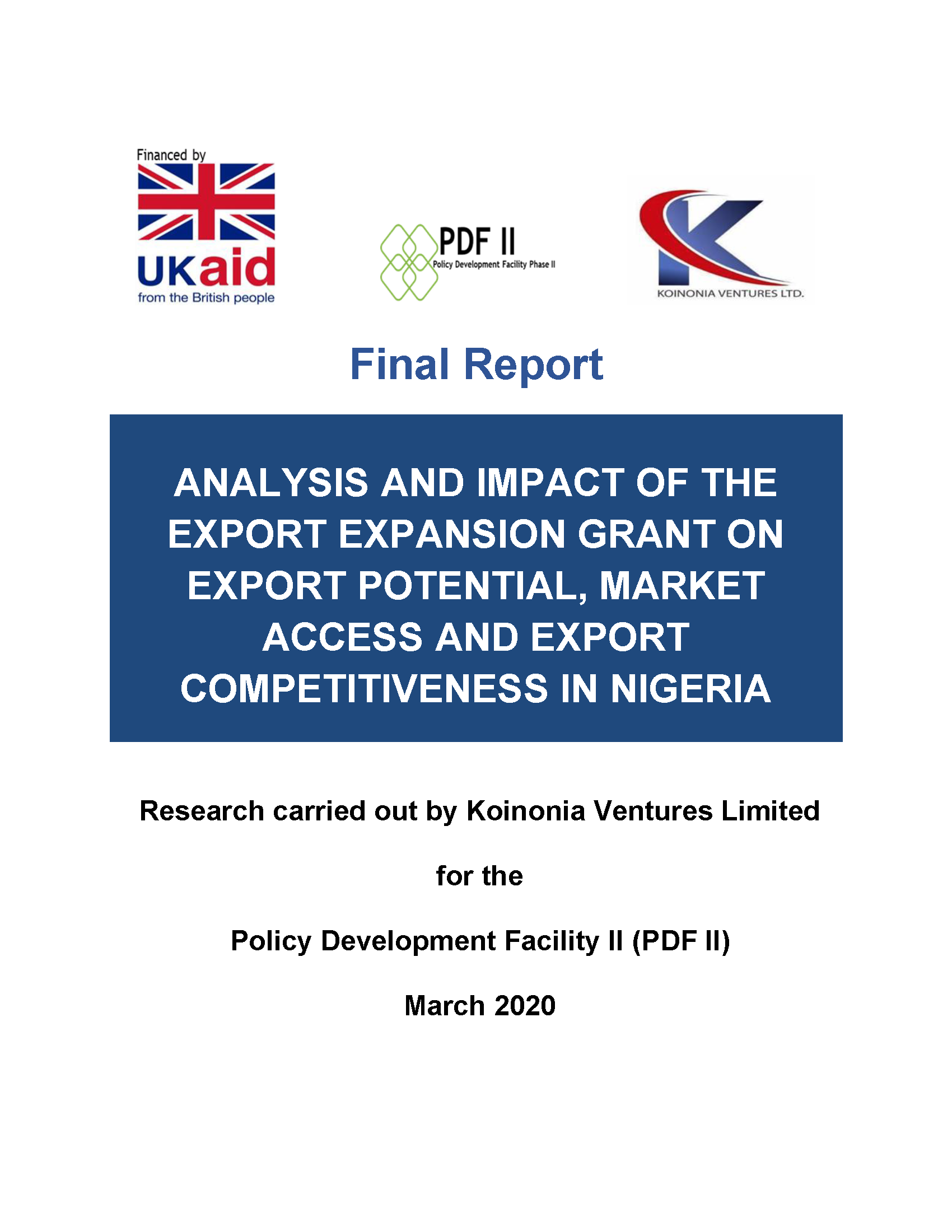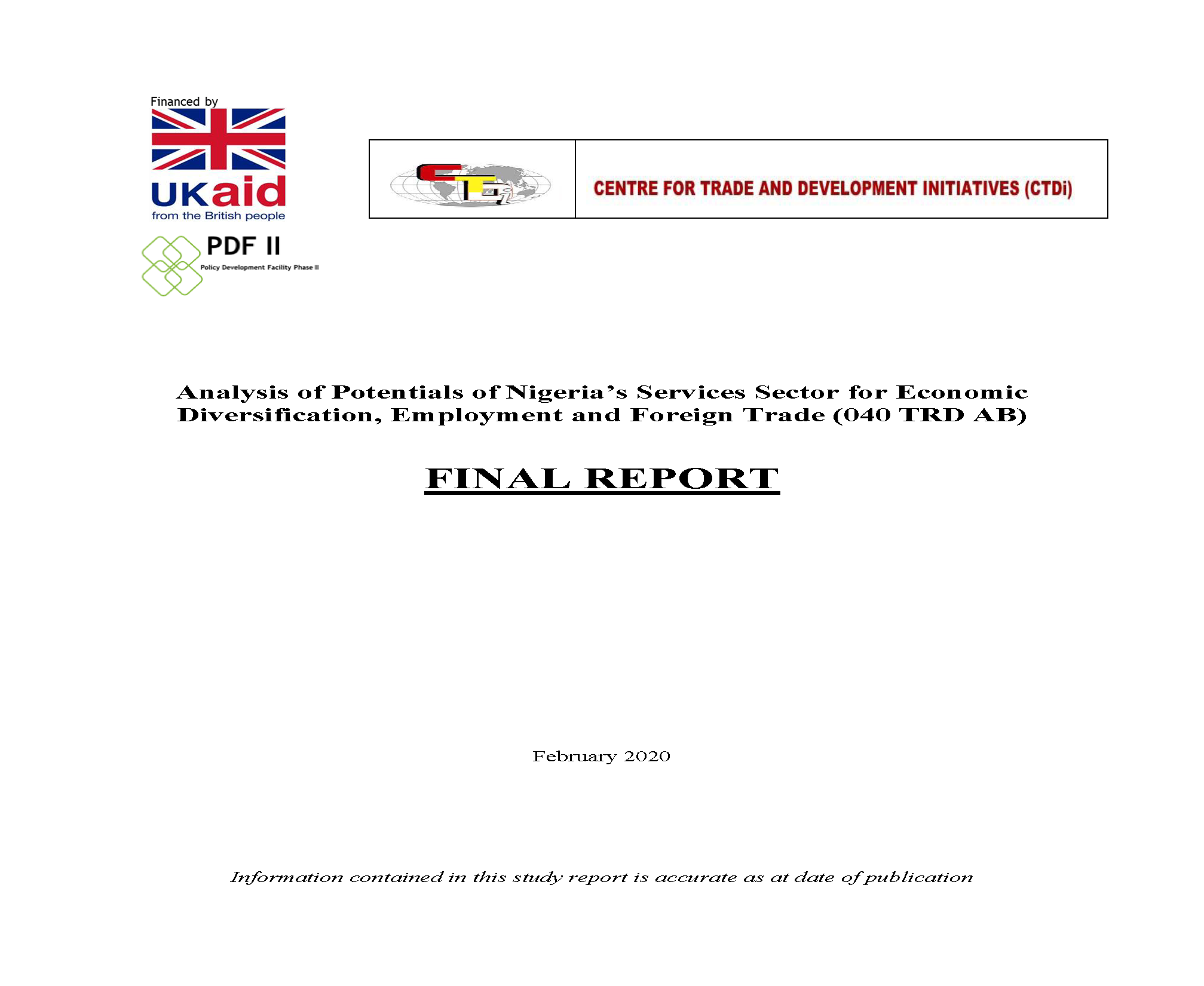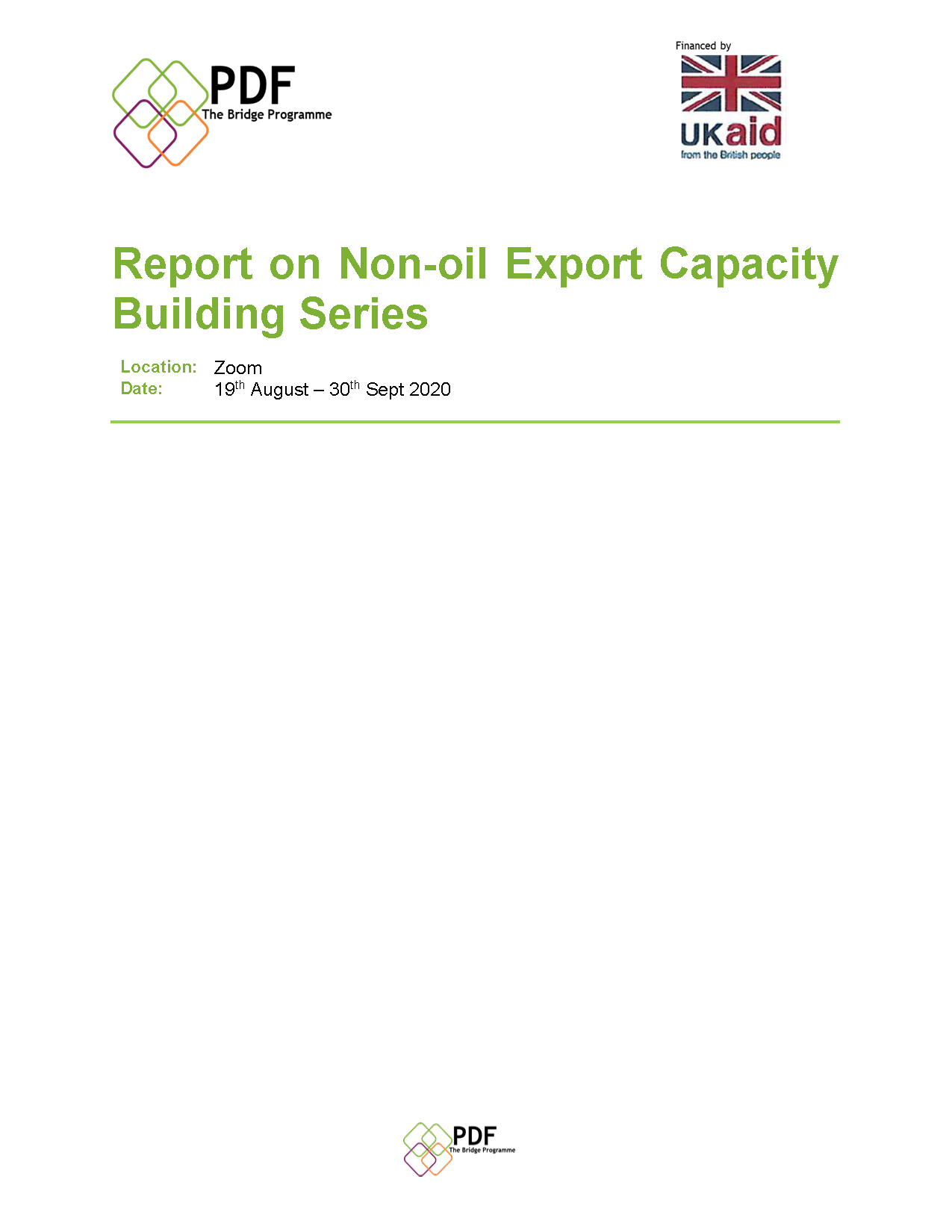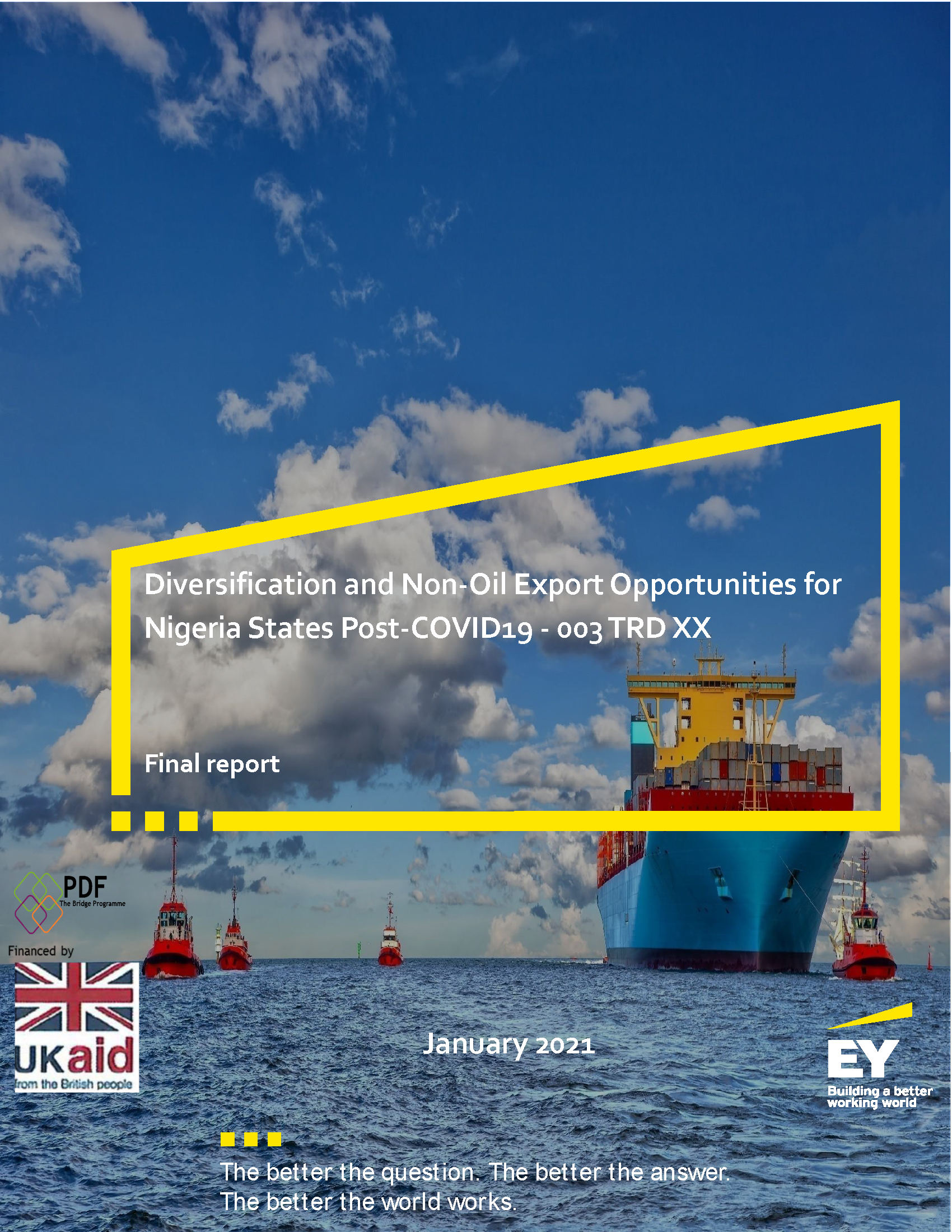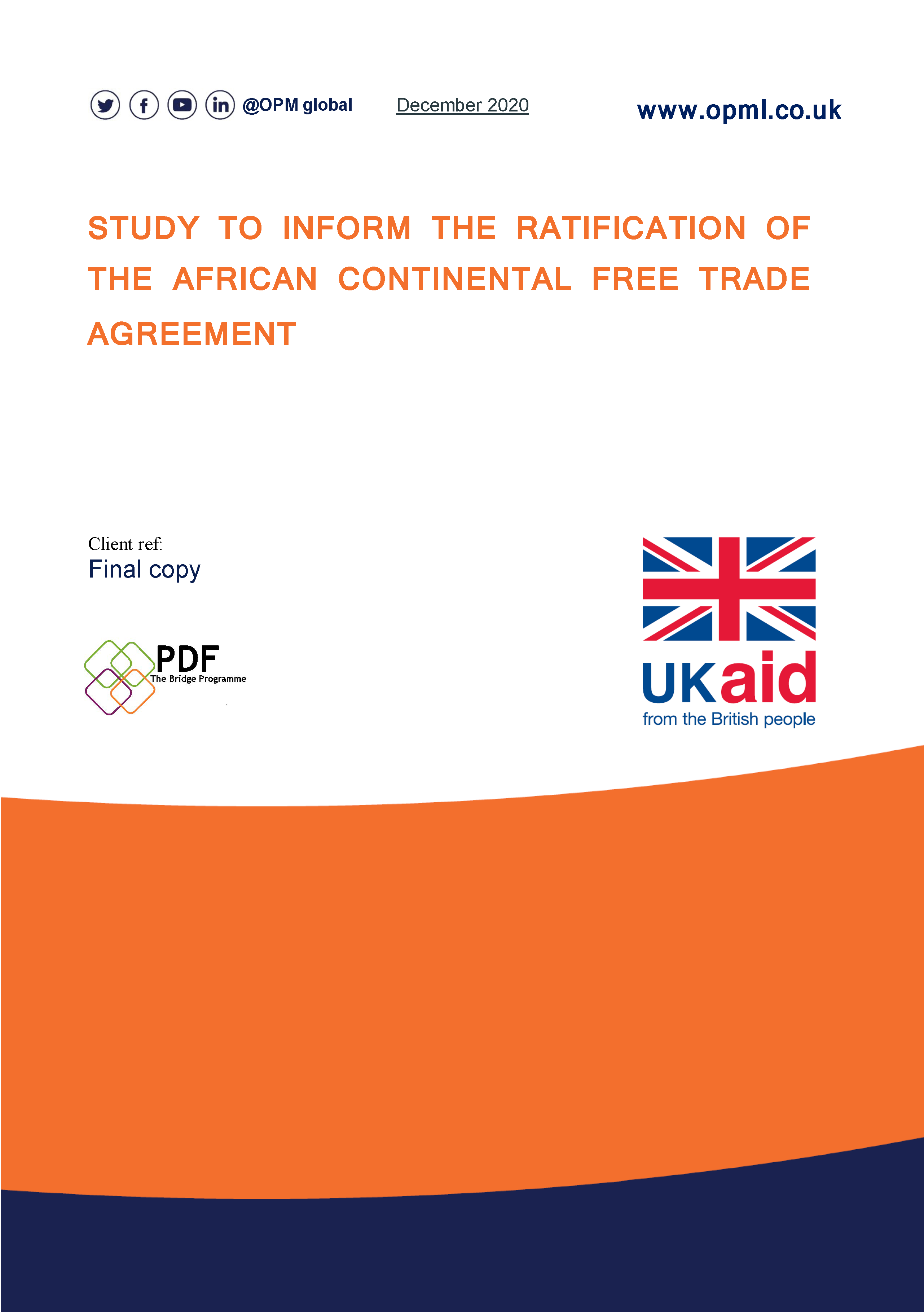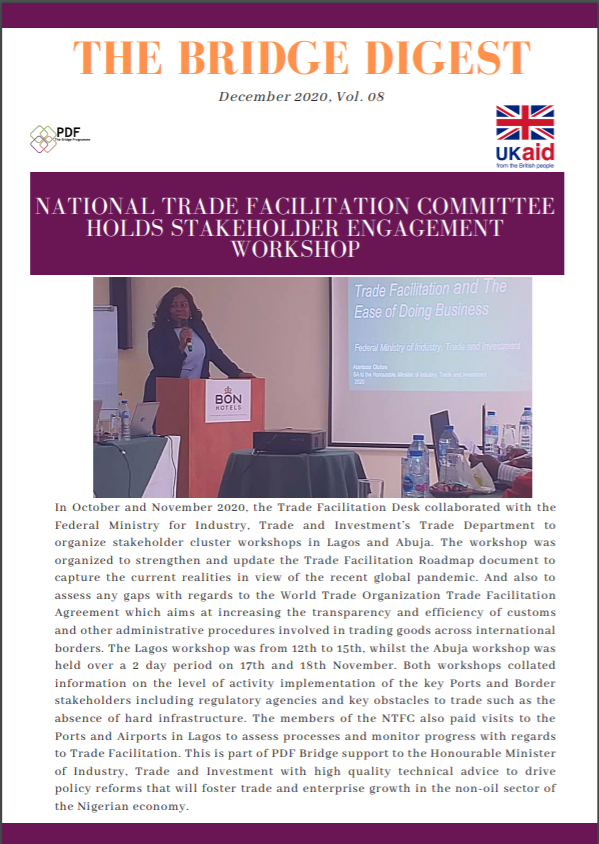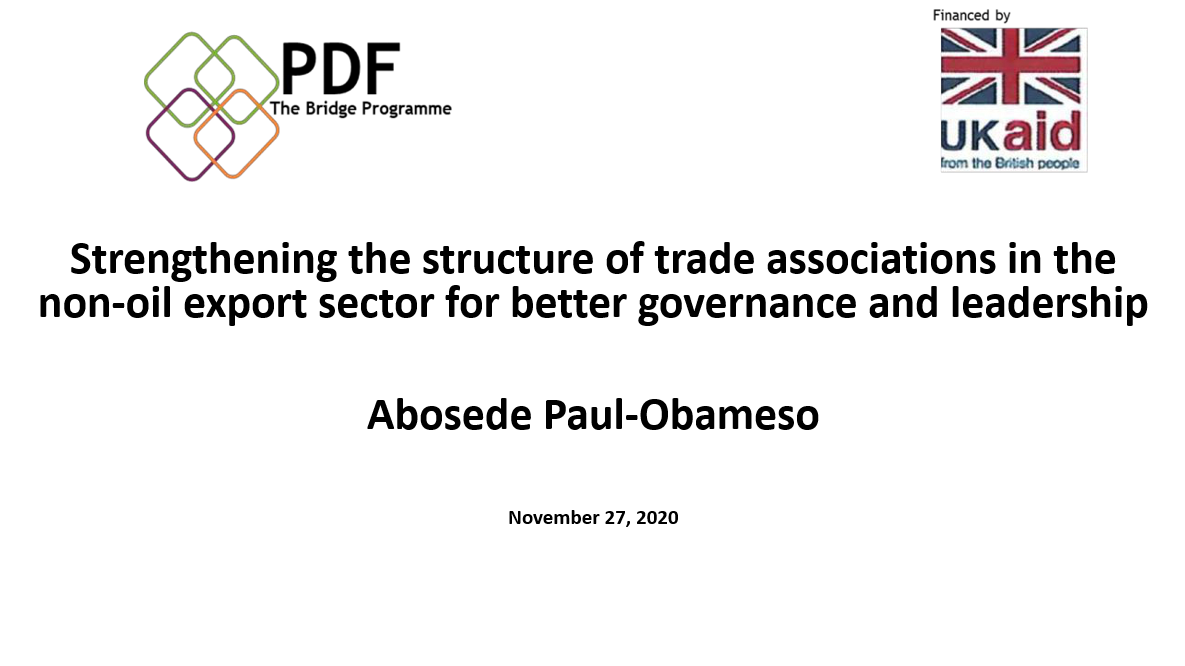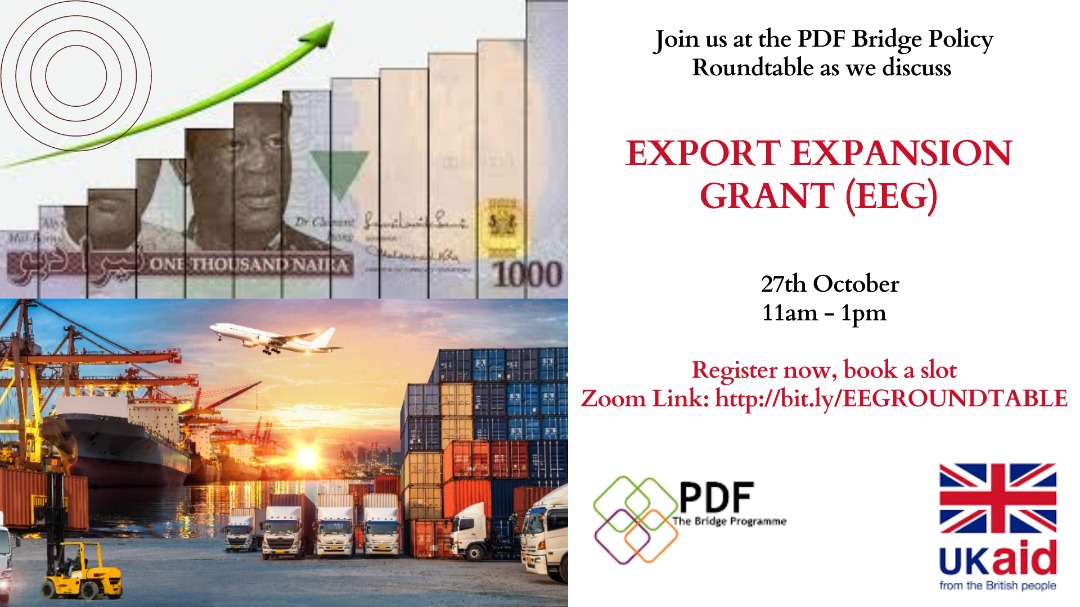Lifting 100 Million Nigerians out of Poverty
The Policy Development Facility Bridge programme’s Trade Policy Workstream (TRD) has been supporting the growth of the non-oil export sector since its predecessor programme Policy Development Facility II (PDF II) by enabling underrepresented export-oriented voices in economic policy and strengthening the sustainable participation of exporter groups.
One of the many ways TRD is addressing this is through an innovative trade mentorship programme. The programme is connecting non-oil export potentials with experienced mentors who have practical regulatory, sourcing, shipping, marketing, and export financing knowledge. The mentors will handhold the mentees helping them escape the initial pitfalls that plague inexperienced exporters. The programme began on November 18, 2020 and currently has 7 mentors and 17 active mentees.
PDF Bridge Advisors leveraged evidence from research conducted by PDF Bridge in contributing to the development of an Economic Sustainability Plan (ESP) which focuses on a post-covid19 economy recovery targeting retention of existing jobs, creating new jobs, levering digital skills to export services, and advocating for interventions which seek to de-risk the environment.


